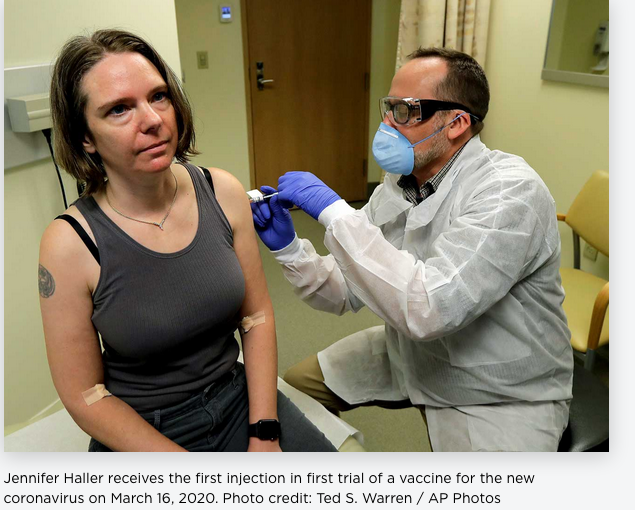South San Francisco, Ca March 19, 2020 by Kaiser Permanente
On March 16, 2020, Kaiser Permanente Washington Health Research Institute gave the first-ever injection of an investigational vaccine for the 2019 novel coronavirus, SARS-CoV-2, to volunteers participating in phase one of the federally sponsored clinical trial.
This is the first vaccine trial for this virus, which causes COVID-19, in humans. The KPWHRI trial began recruiting participants on March 3.
“We are proud that the National Institute of Allergy and Infectious Diseases selected us to conduct this innovative trial,” said Lisa Jackson, MD, MPH, senior investigator at KPWHRI. “We’re well prepared and focused on helping to address this evolving health situation.” Dr. Jackson is the lead researcher for the study, funded by the National Institutes of Health.

The investigational vaccine is called mRNA-1273 and made by Moderna. The vaccine is made using a new process that is much faster than older methods of making vaccines. It does not contain any part of the actual coronavirus and cannot cause infection. Instead, it includes a short segment of messenger RNA that is made in a lab.
The initial trial is a small “phase I” test involving 45 participants—part of a 3-phase process that is necessary to determine whether a vaccine works. In this first phase, KPWHRI researchers are testing the safety of various doses and whether these doses produce an immune response. Phase I trials are not designed to determine whether the vaccine is effective in preventing coronavirus infection. That work comes at a later phase of the vaccine research.
KPWHRI’s path to this important role
KPWHRI’s vaccine research team has expertise in conducting these kinds of trials, including testing other investigational vaccines against “swine” (H1N1) and “bird” (influenza A) flu.
KPWHRI became Vaccine and Treatment Evaluation Units, or VTEU, site in 2007, and it is the only one of the nation’s 9 VTEU centers not housed at a university medical center. Since 1962, the VTEUs have played a key role in developing new and improved vaccines and therapies against infectious diseases.